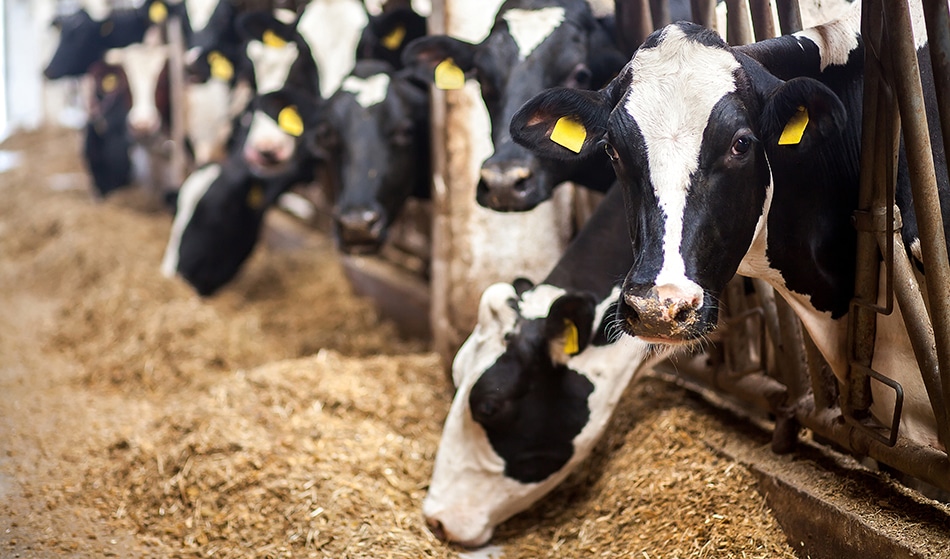ISO 16649-2 E. coli Enumeration in Feed and Grain Products
The enumeration of E. coli is a critical step in ensuring the safety, quality, and regulatory compliance of feed and grain products used in agricultural and animal husbandry sectors. This service aligns with ISO 16649-2, which provides a standardized approach to enumerating E. coli in these products.
The presence of E. coli can have significant implications for both the health of livestock and human consumers who may eventually consume meat or dairy products derived from these animals. Contamination with certain strains, such as O157:H7, can lead to serious illness in humans. Therefore, precise enumeration is essential to maintain product safety.
The methodology specified by ISO 16649-2 involves a series of steps designed to ensure accurate and reliable results. Specimens are collected from feed or grain products and undergo rigorous preparation before inoculation into selective media. The selected medium allows for the growth and enumeration of E. coli colonies, which can then be counted manually.
The process begins with proper sampling techniques to avoid contamination and ensure representative samples. Samples are then prepared according to ISO guidelines, ensuring they are free from other bacteria that could interfere with the accurate counting of E. coli. The inoculated media require incubation under specific conditions, which typically include a temperature range between 35°C to 37°C for approximately 24 hours.
The final step involves manual counting of colonies on the selective medium. This is done by transferring representative samples from the culture plates onto a microscope slide or other suitable medium and then manually counting the colonies under controlled conditions. This method ensures that all colonies are counted accurately, providing a precise enumeration of E. coli in the sample.
The results obtained from this process provide critical data for quality control and compliance with international standards like ISO 16649-2. The data can be used by quality managers to ensure that feed and grain products meet regulatory requirements, thereby safeguarding animal health and public safety.
Scope and Methodology
| Step | Description |
|---|---|
| Sample Collection | Collect representative samples from feed or grain products using aseptic techniques. |
| Preparation | Prepare the collected samples according to ISO 16649-2 guidelines to eliminate interfering microorganisms. |
| Inoculation | Inoculate prepared samples into selective media that support the growth of E. coli. |
| Incubation | Incubate the inoculated media at 35°C to 37°C for 24 hours. |
| Counting | Manually count the E. coli colonies on the selective medium under controlled conditions. |
The methodology outlined in ISO 16649-2 ensures that all steps are followed rigorously, leading to accurate and reliable results. The use of standardized procedures minimizes variability and enhances the confidence in the test outcomes.
Quality and Reliability Assurance
The reliability and accuracy of our ISO 16649-2 E. coli enumeration service are ensured through strict adherence to international standards and stringent quality control measures. Our laboratory is equipped with state-of-the-art equipment, including selective media for E. coli growth, incubators that meet the specified temperature ranges, and advanced counting tools.
We employ highly trained technicians who are certified in microbiological testing procedures. Regular calibration of instruments ensures that all tests are conducted under optimal conditions. The laboratory also maintains strict adherence to ISO standards during every step of the process, from sample collection to final reporting.
The quality assurance system includes regular audits and reviews to ensure continuous improvement and compliance with best practices. Our commitment to excellence is reflected in our consistent accuracy rates and ability to meet regulatory requirements for feed and grain products.
Environmental and Sustainability Contributions
The enumeration of E. coli in feed and grain products not only ensures the safety of livestock but also contributes positively to environmental sustainability. By maintaining high standards in feed quality, we help reduce the risk of contamination that could lead to increased veterinary costs for farmers.
Our services contribute to sustainable agriculture by promoting the use of safe and reliable feed ingredients. This helps prevent unnecessary waste and supports the overall health and productivity of livestock, which is beneficial for both environmental and economic reasons.
The accurate enumeration of E. coli also aids in reducing the spread of harmful pathogens, which can have broader ecological impacts by affecting wildlife populations that may consume contaminated feed or products derived from these animals.





